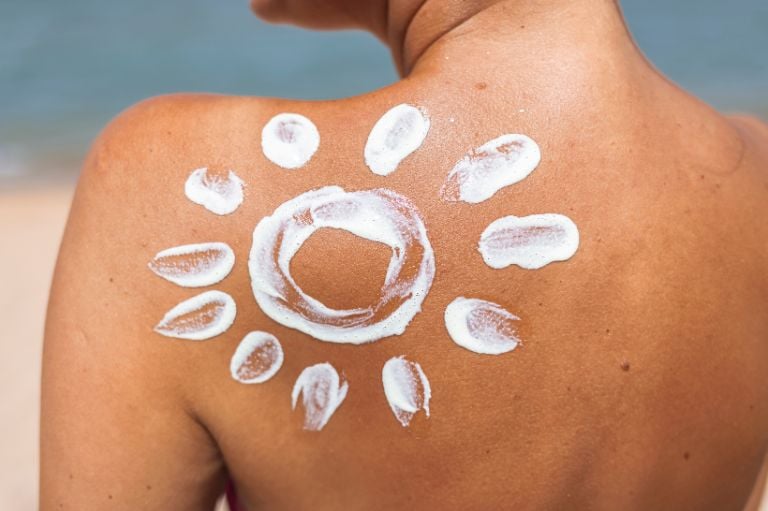- Presented by
- RigaBrain
- Get wholesale pricing
- Save with a MyShop discount!
- Free shipping on orders from 125€ or more. Consult shipping conditions.
Are you sure you want to leave RigaBrain's MyShop site?
Are you sure you want to leave RigaBrain's MyShop site?

Written by: 4Life Research
Publication date: August 2024
Summer brings long days, sunshine, and... high temperatures! But did you know that heat can affect your immune system? We explain how and what you can do to protect yourself.
With high temperatures, our metabolism speeds up, generating more free radicals in our body.
According to the European Food Information Council (EUFIC), free radicals are molecules that can come from external sources such as tobacco, alcohol, or environmental pollution. Still, they are also produced by our body during normal metabolic functions. When our body generates too many of these molecules, called free radicals, they can damage cells, proteins, and DNA, causing oxidative stress (among other complications).
But how does oxidative stress affect you? Oxidative stress can cause everything from premature skin aging to more serious diseases.
Let's look at some situations that cause it:

Exposure to the sun and its ultraviolet (UV) rays can lead to the formation of reactive oxygen species (ROS) in the skin.
These ROS are a type of free radical that can damage cells and cause inflammation. Excessive sun exposure not only increases the risk of short-term sunburns but also leads to premature skin aging and more complex diseases in the medium to long term.
We must also consider environmental pollutants such as ozone and air particles, whose levels are typically higher in summer, further increasing oxidative stress.
We introduce these pollutants into our bodies through breathing, causing cellular damage and exacerbating the negative effects of heat.

When exposed to situations such as heat, environmental pollutants, etc., our body suffers damage, and it is the immune system that makes an extra effort to prevent these situations from causing major problems in the body.
However, this extra effort generates immune stress, which can weaken immune protection.
Some situations that cause stress to the immune system are:
You've surely heard many times that hydration is essential in summer, but do you know why?
Heat increases the risk of dehydration, which can affect the functioning of the immune system. Dehydration makes it difficult to transport nutrients and oxygen to cells and to eliminate waste.
Therefore, the more you hydrate, the better your body functions and the stronger your immune system will be.
In very hot days, sweating increases, leading to the loss of many important nutrients such as vitamin C, zinc, and magnesium, essential for a robust immune response and crucial in defending the body against infections and diseases.
The longer the exposure to high temperatures, the greater the risk of heat stress and fatigue, weakening the body's immune defense.
Our body produces a hormone called cortisol, which is released in stressful situations. In a stressful situation, such as heat exposure, our body releases cortisol, which can reduce immune function.
Therefore, avoiding strenuous activities during the hottest days also helps to keep your immune system protected.
How many times have you woken up at night because of the heat or found it difficult to sleep well? High temperatures can interfere with sleep quality and duration. Poor sleep negatively affects the immune system, making the body more susceptible to infections and diseases.
Preparing your room to be a cool and comfortable environment is a great boost for your immune system.
Oxidative stress can trigger inflammation, putting additional pressure on the immune system. Chronic inflammation can weaken the immune response over time.
One key to reducing inflammation is to follow a balanced diet and maintain healthy lifestyle habits. Enjoy fresh seasonal fruits and vegetables! Your immune system will thank you.
Sometimes it's difficult to identify when we are subjecting our immune system to stressful situations, so here are some strategies to keep your defenses under control this summer:
Hydration: Drink plenty of water and consume hydrating foods such as fruits and vegetables. Proper hydration helps maintain fluid balance in the body and supports cellular functions.
Nutrition: Follow a balanced diet rich in antioxidants, such as vitamins C and E, and selenium. Antioxidants combat oxidative stress and help protect cells from damage.
Sun Protection: Use sunscreen, wear protective clothing, and limit sun exposure during peak hours to reduce UV-induced oxidative stress. This not only protects your skin but also reduces the risk of cellular damage.
Rest and Sleep: Maintain a cool sleeping environment to improve sleep quality and support immune health. Good sleep is essential for cell repair and maintaining a strong immune system.
Stress Management: Practice stress-reducing activities such as meditation, yoga, and regular exercise. Reducing stress can help mitigate the effects of heat on the immune system.

By taking these measures, you can protect your body from the negative effects of high temperatures and support your immune system during the summer. Enjoy the sun healthily and keep your immune system strong!
*4Life products are not intended to diagnose, treat, cure, or prevent any disease.
You are trying to view a MyShop page. Please log out in order to view this website.